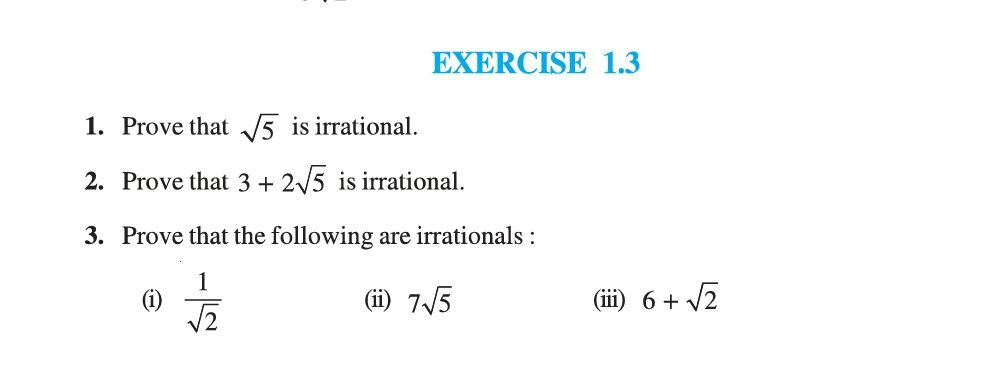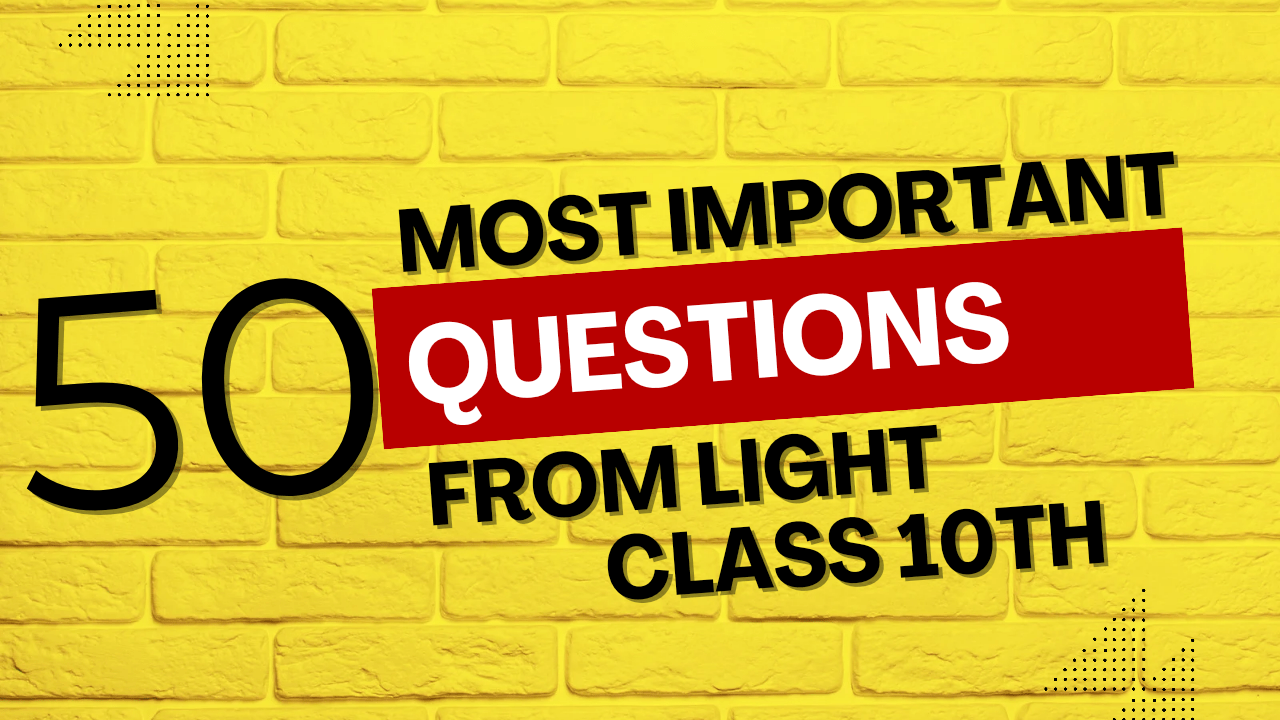
Exercise 1.3 Solutions – Real Numbers (Class 10)
Irrational Numbers Proofs
Proof by contradiction:
Assume √5 is rational. Then it can be expressed as a ratio of two coprime integers:
√5 = p/q, where q ≠ 0 and HCF(p,q) = 1
Squaring both sides:
5 = p²/q² ⇒ p² = 5q² …(1)
This implies p² is divisible by 5 ⇒ p is divisible by 5 (by the theorem: if a prime divides a², then it divides a)
Let p = 5k for some integer k
Substitute into (1):
(5k)² = 5q² ⇒ 25k² = 5q² ⇒ q² = 5k²
This implies q² is divisible by 5 ⇒ q is divisible by 5
Contradiction: Both p and q are divisible by 5, but we assumed they are coprime (HCF=1)
∴ Our initial assumption is false, and √5 must be irrational. ∎
Proof by contradiction:
Assume 3 + 2√5 is rational. Then:
3 + 2√5 = a/b, where b ≠ 0 and HCF(a,b) = 1
Rearranging:
2√5 = (a/b) – 3 = (a – 3b)/b
√5 = (a – 3b)/(2b)
Since a and b are integers, (a – 3b)/(2b) is rational ⇒ √5 is rational
Contradiction: We know from Problem 1 that √5 is irrational
∴ Our assumption is false, and 3 + 2√5 must be irrational. ∎
Proof by contradiction:
Assume 1/√2 is rational. Then:
1/√2 = p/q, where q ≠ 0 and HCF(p,q) = 1
Rearranging:
√2 = q/p
This implies √2 is rational (as ratio of two integers)
Contradiction: It’s known that √2 is irrational (similar proof as √5)
∴ 1/√2 must be irrational. ∎
Proof by contradiction:
Assume 7√5 is rational. Then:
7√5 = p/q, where q ≠ 0 and HCF(p,q) = 1
√5 = p/(7q)
Right side is rational (as p and 7q are integers) ⇒ √5 is rational
Contradiction: We proved √5 is irrational in Problem 1
∴ 7√5 must be irrational. ∎
Proof by contradiction:
Assume 6 + √2 is rational. Then:
6 + √2 = a/b, where b ≠ 0 and HCF(a,b) = 1
Rearranging:
√2 = (a/b) – 6 = (a – 6b)/b
Right side is rational ⇒ √2 is rational
Contradiction: It’s known that √2 is irrational
∴ 6 + √2 must be irrational. ∎
Additional Proofs (From RD Sharma)
Proof by contradiction:
Assume √3 is rational. Then:
√3 = p/q, where q ≠ 0 and HCF(p,q) = 1
Squaring: 3 = p²/q² ⇒ p² = 3q² …(1)
⇒ p² is divisible by 3 ⇒ p is divisible by 3
Let p = 3k
Substitute in (1): 9k² = 3q² ⇒ q² = 3k²
⇒ q² is divisible by 3 ⇒ q is divisible by 3
Contradiction: Both p and q divisible by 3, but HCF(p,q)=1
∴ √3 is irrational. ∎
Proof by contradiction:
Assume 5 – √3 is rational. Then:
5 – √3 = a/b, where b ≠ 0 and HCF(a,b) = 1
Rearranging: √3 = 5 – (a/b) = (5b – a)/b
Right side is rational ⇒ √3 is rational
Contradiction: We know √3 is irrational (from Problem 4)
∴ 5 – √3 is irrational. ∎


